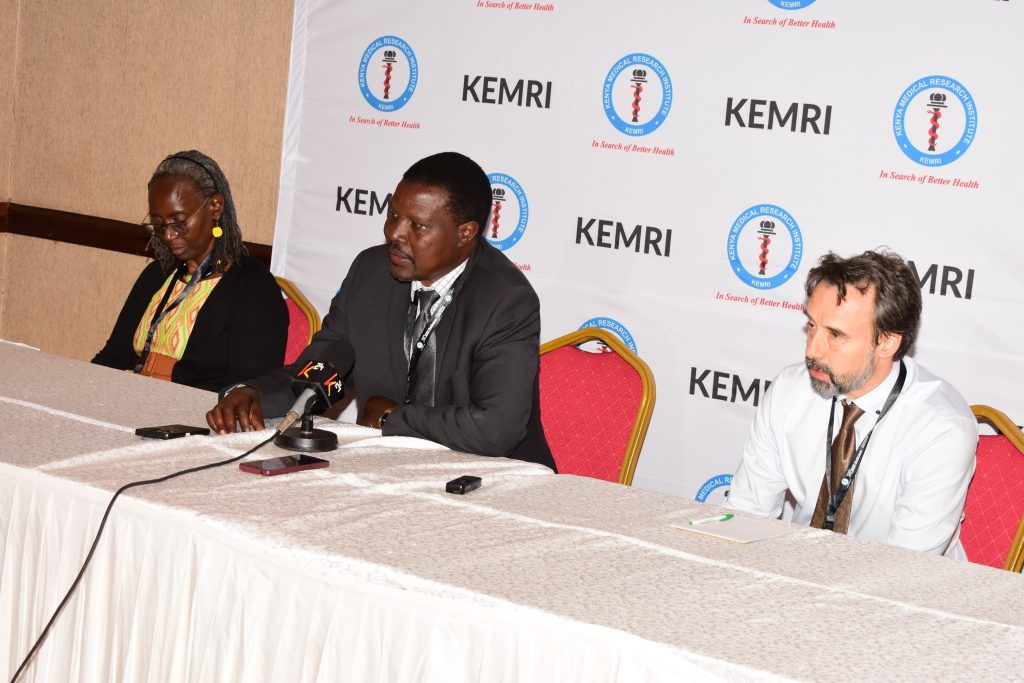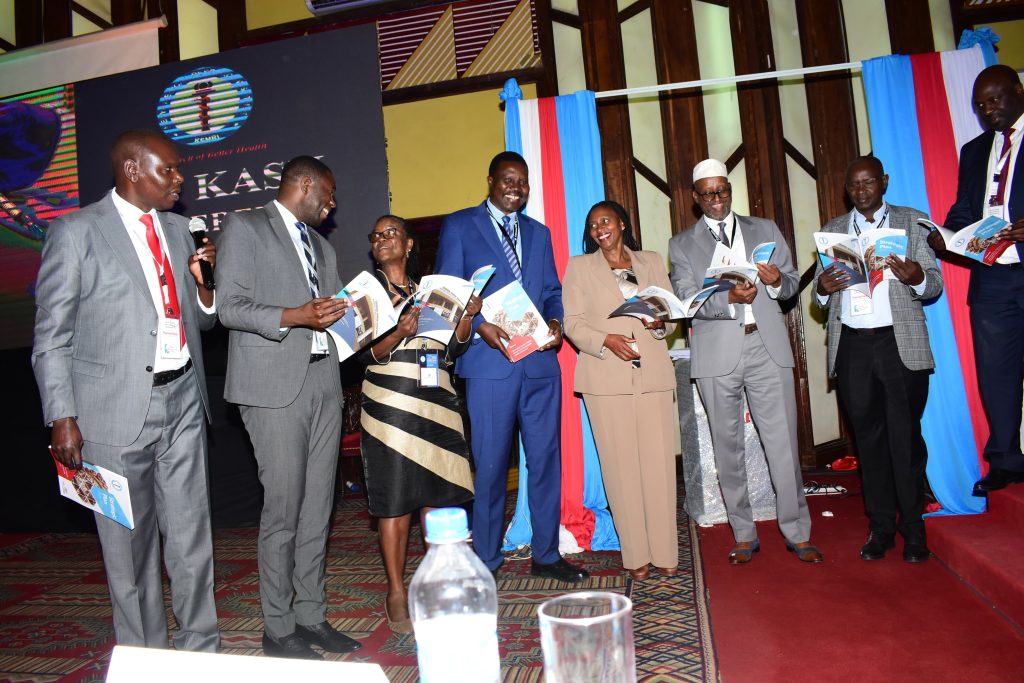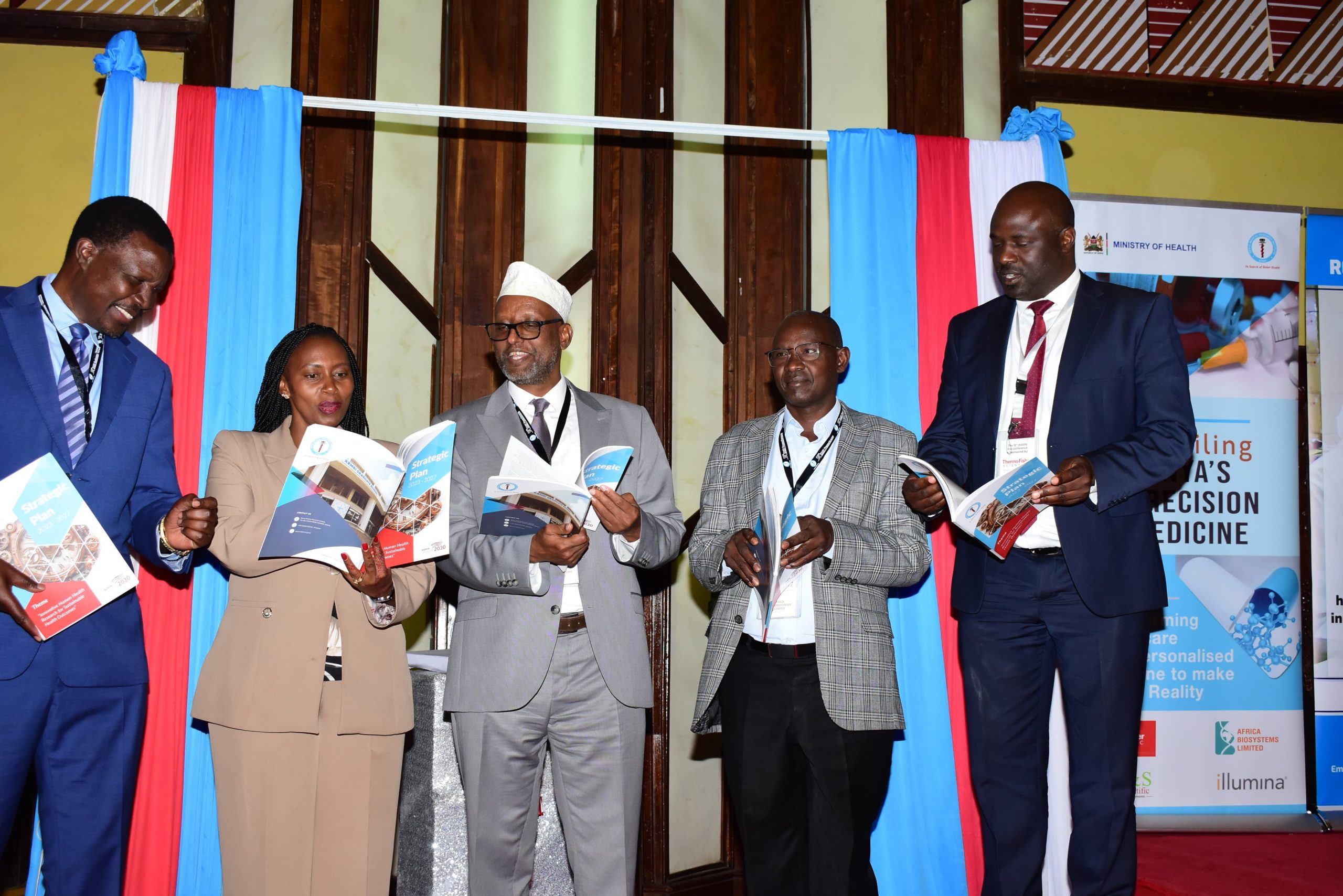By James Nyaigoti
The 15th KEMRI Annual Scientific and Health Conference (KASH 15) kicked off on February 11, 2025, with a robust commitment to advancing healthcare in Kenya and beyond. Under the theme Research, Technology, and Innovation for Sustainable Health Systems.
The conference has brought together an impressive array of experts, policymakers, researchers, and healthcare professionals to discuss the future of health systems. With its emphasis on pioneering technologies, sustainable solutions, and collaboration, the conference has already sparked deep discussions on how research and innovation can reshape health systems, from local communities to global health frameworks.

Day One: KEMRI’s Vision for a Healthier Future
The opening day of the conference set the tone for what was to be an inspiring and ambitious week. Cabinet Secretary for Health, Dr. Deborah Mulongo Barasa, opened the event by reaffirming the Ministry of Health’s commitment to KEMRI’s pivotal role in advancing Kenya’s health systems. Dr. Barasa highlighted KEMRI’s groundbreaking work, especially in personalized healthcare, with the launch of the Precision Medicine Centre of Excellence. This initiative, she noted, is crucial for realizing universal health coverage (UHC) and advancing Kenya’s Bottom-Up Economic Transformation Agenda (BETA).
“We are committed to supporting KEMRI’s efforts in precision medicine, ensuring tailored healthcare becomes a reality for all Kenyans,” Dr. Barasa said, further underscoring the importance of evidence-based health solutions and innovative research in tackling both current and emerging health challenges.

The unveiling of KEMRI’s Strategic Plan 2023-2027 was another key moment during the opening session. Prof. Elijah Songok, Acting Director General of KEMRI, presented the new plan, which aligns with both national frameworks such as Kenya Vision 2030 and global initiatives like the United Nations Sustainable Development Goals (SDGs).
The plan focuses on addressing critical public health issues such as non-communicable diseases, infectious diseases, and health infrastructure, emphasizing KEMRI’s role in research, capacity building, and equitable healthcare access.
Day Two: Navigating Challenges, Building Resilience
Day two of the conference was marked by candid discussions on the future of global health and the ongoing challenges that affect both local and international communities. A central theme revolved around the impact of funding on the sustainability of health research. KEMRI’s Acting Director General, Prof. Songok, shared concerns about the recent announcement of the United States’ withdrawal of funding, which constitutes 60% of KEMRI’s financial support. He noted that the repercussions would be felt beyond Kenya, with global research projects, particularly those focused on diseases like malaria, facing potential disruptions.
“We must diversify our sources of funding and seek partnerships beyond the US, including collaborations with the UK, Asia, and locally,” Prof. Songok emphasized. He also stressed the importance of exploring alternative funding avenues, including government lobbying, philanthropy, and local revenue generation. This announcement also served as a wake-up call for other nations to focus on sustainable healthcare funding.
Meanwhile, discussions surrounding healthcare advancements continued to evolve. Prof. Feiko ter Kuile from the Liverpool School of Tropical Medicine shed light on ongoing collaborative efforts between KEMRI and international partners. Specifically, he focused on malaria research, detailing the growing issue of drug resistance and the need for new treatments. He also raised alarms about the increasing complexity of diseases like malaria, which can hide in the placenta of pregnant women and cause long-term harm, highlighting the urgency of developing effective interventions.
“Malaria parasites are becoming resistant to WHO-recommended drugs, making the need for new, effective treatments even more critical,” Prof. ter Kuile stated.
Panel discussions also brought attention to emerging threats like Mpox, which has been detected in neighboring countries. Dr. John Waitumbi, Research Director at KEMRI, and Prof. Elizabeth Bukusi, an expert in research ethics, elaborated on ongoing research efforts to track and contain such diseases, underscoring the importance of preparedness and collaboration in tackling global health threats.
Collaborative Efforts for Global Health
A recurring theme in both days of the conference has been the importance of collaboration. Dr. Abdullahi Ali, Chairman of KEMRI, emphasized that KEMRI’s leadership in precision medicine and other health initiatives is only possible through collaboration with both local and international partners. The establishment of the KEMRI Precision Medicine Centre of Excellence and the formation of the PM Kenya Task Force are prime examples of such partnerships.
As the conference continues, participants are expected to engage in further discussions on integrating precision medicine into national health strategies, improving healthcare infrastructure, and developing sustainable funding models. Through these collective efforts, KEMRI aims to ensure that the benefits of research and innovation are shared across all communities, particularly those most underserved.
Looking Ahead
With innovative health initiatives and the launch of the new KEMRI Strategic Plan, Kenya is poised to continue its leadership in health research and innovation. This year’s conference serves as both a platform for scientific exchange and a call to action for all stakeholders to work together to ensure the long-term sustainability of health systems.
As the conference progresses, it will continue to explore how Kenya’s health systems can be strengthened through research, technology, and strategic partnerships. Through collaborative efforts and a commitment to sustainable health policies, KEMRI and its partners are paving the way for a healthier future for Kenyans and the global community at large.


